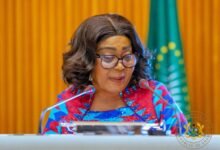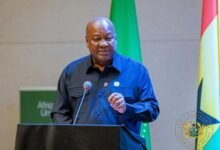The Costly Gamble: Unveiling the Consequences of Neglecting Epidemic Preparedness
The world has seen the disturbing impact of epidemics such as cholera, smallpox, leprosy, measles, polio, yellow fever, COVID-19 and Ebola. These outbreaks have not only claimed thousands of lives but have also wreaked havoc on economies, healthcare systems, and societies as a whole. The question that arises is, could these catastrophic consequences have been prevented or mitigated if countries had been better prepared for such epidemics?
The answer, of course is yes. The neglect of epidemic preparedness has proven to be a costly gamble, with dire consequences for those who have chosen to ignore the warnings and recommendations of experts in the field. The lack of investment in healthcare infrastructure, surveillance systems, and response mechanisms has left many countries ill-equipped to handle the rapid spread of infectious diseases.
A pandemic is an epidemic of infectious disease that spreads through human populations across a large region, multiple continents or globally. These are diseases that infect humans and can spread easily. Pandemics become disasters when they cause large numbers of deaths, as well as illness, and have severe social and economic impacts.
Epidemics and pandemics can be prevented and mitigated through a range of household and community measures, such as good hygiene and sanitation, handwashing, vaccination, use of antiviral medications, social distancing, good clinical practice, proactive surveillance, early warning systems, vector control among others.
One of the most glaring examples of this neglect was the case of COVID-19. Despite warnings from public health officials and experts about the potential for a global pandemic, many countries were caught off guard when the virus began to spread rapidly. The lack of testing capacity, personal protective equipment (PPEs) and hospital beds left a toll on healthcare system leading to huge deaths.
It is for this reason that SEND Ghana, a civil society organisation (CSO), rallied its network members to petition the Presidency and Parliament for the establishment of a Public Health Emergency Fund (PHEF) to enable the country to respond adequately to epidemics. The petition received endorsement from almost 600 individuals and other CSOs in 2022.
According to SEND Ghana and its partners, the impact of the COVID-19 pandemic and the strain it put on the health sector underscored the importance of such a fund—PHEF.
The petition said the idea of a PHEF was nothing new but originated from the government itself through a policy to set up the PHEF as part of the country’s Medium-Term National Development Policy Framework (MTNDPF) from 2022 to 2025.
“Such a fund will be critical in helping increase resilience in Ghana’s health system to prepare and respond with urgency to current public health risks and future epidemics and pandemics,” the petition indicated.
The petition further indicated that even without any new epidemic, the country continue to experience re-occurring disease outbreaks such as cholera, meningitis and influenza, which needs to be handled effectively and efficiently.
It could be recalled that Ghana scored poorly in the 2021 Global Health Security Index, which was a measure of countries’ preparedness to prevent epidemics. Ghana scored 27 out of 100 with no change from 2019. This means that there is more work to be done, particularly in the areas of building infrastructure, acquiring medical logistics, developing human resources, and investing in health research.
Paul Welaga, a Senior Research Officer Navrongo Health Research Centre (NHRC) is of the view that the key to managing epidemics lies in investing in epidemic preparedness and response.
This he emphasised include strengthening healthcare systems, improving surveillance and monitoring capabilities, and building capacity for rapid response to outbreaks.
He said it also required international cooperation and coordination to ensure a unified and effective response to global health threats.
He said though the cost of neglecting epidemic preparedness was high, the price of inaction was even higher.
“It is time for countries to prioritise public health and invest in the necessary infrastructure and resources to prevent future epidemics from spiraling out of control. The stakes are too high to continue gambling with the lives and livelihoods of millions of people around the world. It is time to take action and ensure that we are prepared for the next inevitable health crisis” he stated.
Dr Welaga said funding for research was very key and was the basis for whatever researchers do.
He said if there was no funding, one could not have the right equipment in place saying “you cannot have the needed reagents that you need to do the testing”.
He said you need to be able to test and give very reliable results adding that you need a lot of money to get them.
“Accurate diagnosis is very important. You should be able to say somebody has the infection, if the person really has it. If a person doesn’t have it, you should also be able to test and accurately say the person doesn’t have that infection. When it comes to the COVID, people have to be quarantined if they have the infection” he stated.
Dr Welaga added that if you are not able to accurately diagnose, then samples will be brought to you, and you will say, oh, it’s negative. Meanwhile, the person has the infection.
So, if that one person is left to be moving around, he or she will spread the infection.
Speaking on whether the Country has the capacity to handle epidemics he said some infrastructure has been developed following the emergence of COVID-19. But called on government for more to be done in preparation towards the next epidemic.
The President of the Ghana Association of Medical Laboratory Scientists (GAMLS), Dr. Abu Abudu Rahamani in an interview stressed the need for Ghana to set up an epidemic preparedness and response fund.
For him, it will be “disastrous” should the country fail to set up a dedicated fund and prepare itself adequately in terms of logistics and human resources to handle any future outbreaks.
He explained that setting up an epidemic preparedness and response fund will enable the country to respond timely to the threats of certain disease outbreaks adding that it has become critical and a must-do for the country to have a fund that it can easily fall on should there be any epidemic or outbreak in the country.
He said it will be wrong for the country to wait for an outbreak of a disease before marshaling efforts to contain it.
For him, considering the impact of the COVID-19 pandemic together with other emerging threats of infectious diseases, the country has no other option than to prepare itself, financially and logistically, to respond to the threats of epidemics.
For him, even in the absence of emerging epidemics or outbreaks, certain diseases are seasonal in some parts of the country which can be handled effectively when adequate preparation and responses are deployed.
“We know some conditions. So, ours is to make sure that we get the necessary funding and logistics; get the necessary professionals well-trained and have our facilities ready. We shouldn’t wait for epidemics to happen before we start creating some facilities to contain them,” he explained.
Mr Jalil Yusif, a Community Leader at Navrongo said government should set aside portion of the country’s Gross Domestic (GDP) for research adding that government after government has pledged to it but has never happened because the money was always not enough for other things.
He therefore charged the Ministry of Finance (MoF) to set aside a dedicated budget to finance epidemic preparedness and response in the country, explaining that setting aside a dedicated budget by the Ministry for epidemic preparedness and response will provide an adequate response to the threat of epidemics and ensure equitable and effective health care delivery in times of outbreaks of any disease.
Mr Yusif also expressed concern that many Metropolitan, Municipal and District Assemblies (MMDAs) across the country do not have funds to support epidemic fighting at the district level, a situation he said needed to be changed.
He bemoaned how most of the funding that the country had for research came from external donors.
Ms Gifty Owusua Asiedu, Resident, Navrongo, explained that setting up a dedicated fund for epidemic preparedness and response “will help to strengthen inter-governmental, public and private sector collaboration to improve health service delivery and contain future epidemic outbreaks.”
Adding his voice, Mr Alfred Amanor CEO of Regality, a Fashion firm stated that epidemic could have significant impact on the economy, leading to disruptions in supply chains, decreased consumer spending and overall economic instability and that establishing an Emergency Preparedness Fund can mitigate these risks and ensure the continued functioning of businesses.
BY BENEDICTA GYIMAAH FOLLEY







